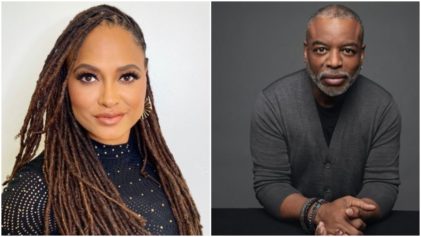As individuals and institutions continue to look at how they’ve contributed to systemic racism, the Academy of Motion Picture Arts and Sciences has announced new diversity standards for the 2021 Oscars. All films that will be nominated for that year will have to meet that standard.
The announcement comes at the same time that Ava DuVernay was elected to a seat on the Board of Governors.

The new initiative is called “Academy Aperture 2025,” and it’s the Academy’s second phase of addressing diversity issues since responding to the #OscarsSoWhite hashtag that was trending in 2015. That year all but one person out of all the major Oscar categories were white.
Moving forward, the Academy plans to focus efforts on increasing diversity among its members and the film industry overall. One step in this direction will involve the creation of a task force that will implement new representation and inclusion standards across the board.
Also, The Academy plans to help make sure there are fair hiring practices throughout the film industry, including for people on screen and who work behind the scenes.
In another change, the Best Picture category will have 10 nominees, compared to previous years when the number fluctuated.
Additionally, through the Academy Screening Room and its internal streaming site, Academy members will be able to view films on a quarterly basis, allowing them to see films year-round. The Academy believes it will give members a chance to see a wider array of films and even the playing field when nominations are selected.
“While the Academy has made strides, we know there is much more work to be done to ensure equitable opportunities across the board,” said Academy CEO Dawn Hudson in a press statement released Friday, June 12. “The need to address this issue is urgent. To that end, we will amend—and continue to examine—our rules and procedures to ensure that all voices are heard and celebrated.”
After the #OscarsSoWhite controversy, the Academy’s Board of Governors had to go through an “unconscious bias training,” something that all Academy governors, members of the branch executive committee and staff of the Academy will have to do each year under the new initiative.
There also will be a series of panels on race called “Academy Dialogue: It Starts with Us.” One of the discussions will be hosted by Whoopi Goldberg, and she’ll talk about the long-lasting effects of racist stereotypes that have been seen in films throughout history.
“Through the dedication, focus, and concerted effort of our Board of Governors and members on the branch executive committees, the Academy has surpassed the goals of our A2020 initiative,” said Academy President David Rubin in the statement. “But to truly meet this moment, we must recognize how much more needs to be done, and we must listen, learn, embrace the challenge, and hold ourselves and our community accountable.”
Rubin added, “Academy leadership and our Board are committed to ensuring that we continue to weave equity and inclusion into the fabric of every Academy initiative, committee, program and event.”
In addition to DuVernay, five others were voted to the Board of Governors. She was elected to represent the director’s branch of the Academy of Motion Picture Arts and Sciences. The voting took place from June 1 to 5.
DuVernay’s film “Selma,” about the 1965 Selma-to-Montgomery voting rights marches, wasn’t nominated in the Best Director category at the 2015 Oscars, the same year that #OscarsSoWhite trended. It was nominated for Best Picture and Best Song, winning Best Song.
“Thank you to the members of the Directors Branch of @TheAcademy,” wrote DuVernay Wednesday, June 10 on Instagram. “Life is a funny, fascinating thing. You never know what’s around the corner.”


